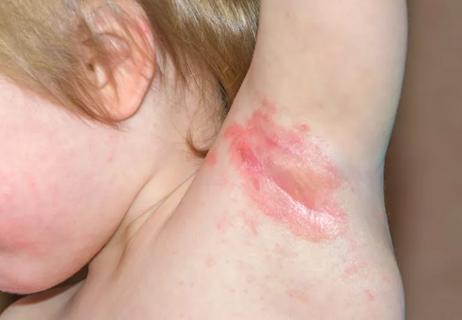The short answer from an obstetrician/gynecologist

A: It’s best to avoid having vaginal sex, receiving oral sex or putting anything in your vagina until your yeast infection goes away.
Advertisement
Cleveland Clinic is a non-profit academic medical center. Advertising on our site helps support our mission. We do not endorse non-Cleveland Clinic products or services. Policy
With a yeast infection, you’re likely to experience a range of unpleasant and uncomfortable symptoms like vaginal irritation, itching and a white, clumpy, odorless vaginal discharge. Yeast infections also cause vulvar swelling and redness. In some cases when the vulva is affected you may see little or no discharge but can still develop tiny “cuts” around the clitoris, vaginal opening or vulva.
The friction from having sex can create even more irritation in those areas. This can make both sex and urination more painful. It can also make your infection much more difficult to heal.
Another reason to avoid sex while you have a yeast infection is that some topical solutions used to treat them contain oil, which can cause a condom to break. Yeast infections generally aren’t contagious, but when a condom breaks you increase your risk of getting pregnant.
For these reasons, it’s best to let your infection heal first. Treatment is available with over-the-counter antifungal medications such as miconazole (Monistat®), vaginal Terconazole cream (Terazole®) or oral fluconazole pills (Diflucan®). If you’re taking these, read the labels to review any side effects.
Make sure you keep the infection area clean at all times by rinsing with water only. Avoid feminine cleansing products since many of these can cause even more irritation, she adds.
Advertisement
For uncomfortable vulvar itching, you can find relief with a mild over-the-counter steroid ointment which generally contains between 1% and 2% hydrocortisone.
— Ob/Gyn Oluwatosin Goje, MD
Advertisement

Sign up for our Health Essentials emails for expert guidance on nutrition, fitness, sleep, skin care and more.
Learn more about our editorial process.
Advertisement

Prescription and over-the-counter medications are the only safe and effective ways to treat a yeast infection

From baking soda to lemon juice, you probably have several home remedies in your fridge that can help with this fungal infection

Your face? Your armpits? Your butt? Yes, yeast infections can affect many parts of your body

The little blue pill might help with physical arousal, but there are better treatments for low libido in women

Start having sex about 72 hours before ovulation, then at least every other day during your fertile window

Arousal without orgasm can be uncomfortable, but it’s no reason to pressure sexual interactions

Testosterone therapy may be an option for women to help address low libido

Birth control medications are more than 99% effective, but only when used properly

Even small moments of time outdoors can help reduce stress, boost mood and restore a sense of calm

A correct prescription helps your eyes see clearly — but as natural changes occur, you may need stronger or different eyeglasses

Both are medical emergencies, but they are very distinct events with different causes